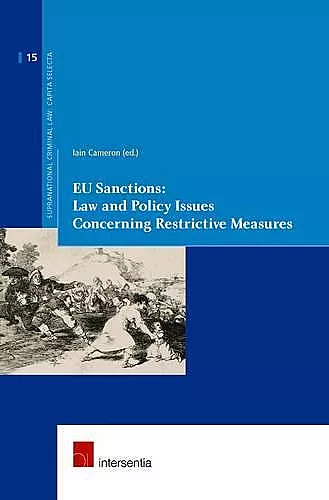EU Sanctions: Law and Policy Issues Concerning Restrictive Measures
Format:Paperback
Publisher:Intersentia Ltd
Published:28th Mar '13
Currently unavailable, and unfortunately no date known when it will be back

This non-fiction paperback, "EU Sanctions: Law and Policy Issues Concerning Restrictive Measures" from Iain Cameron, was published 28th March 2013 by Intersentia Ltd.
ISBN: 9781780681412
Dimensions: 240mm x 160mm x 16mm
Weight: 400g
282 pages